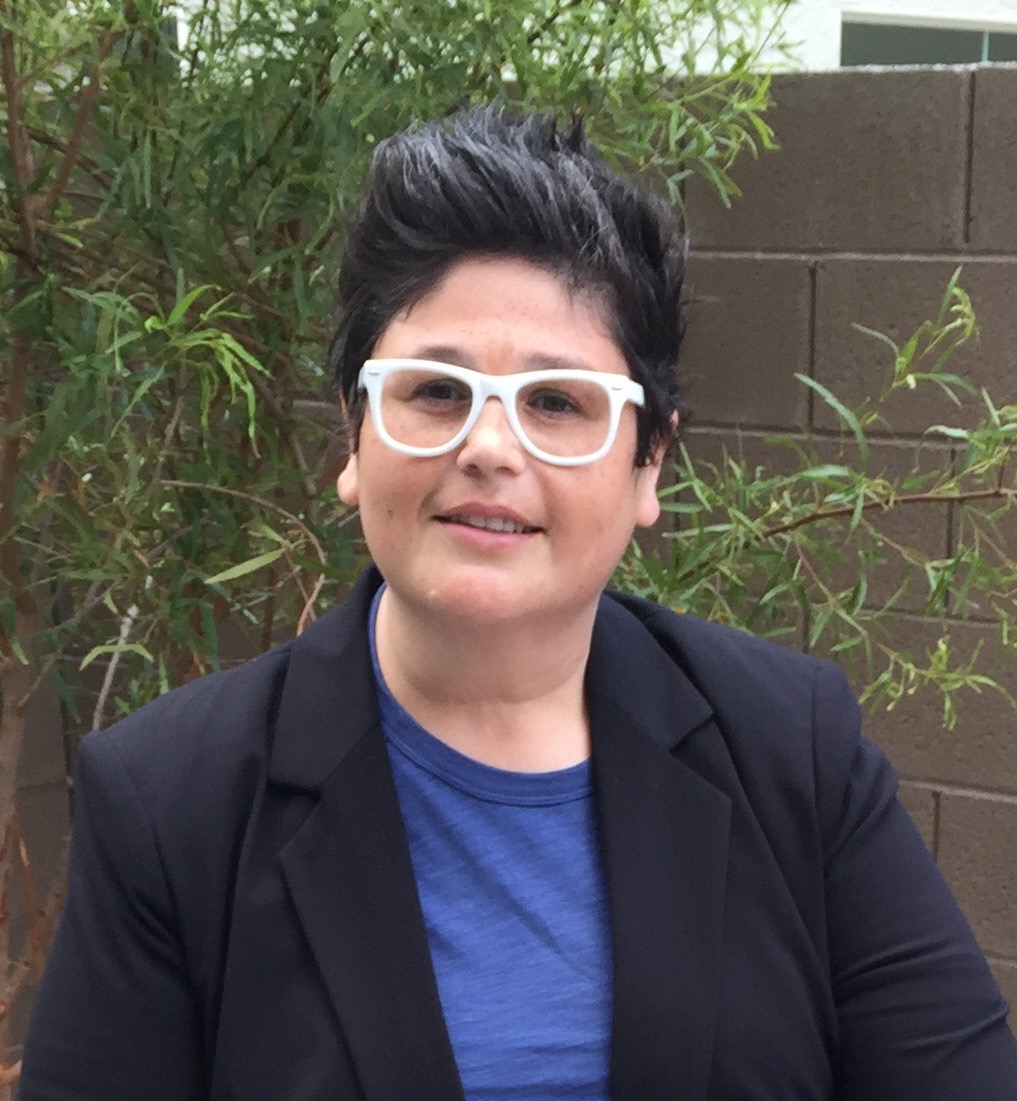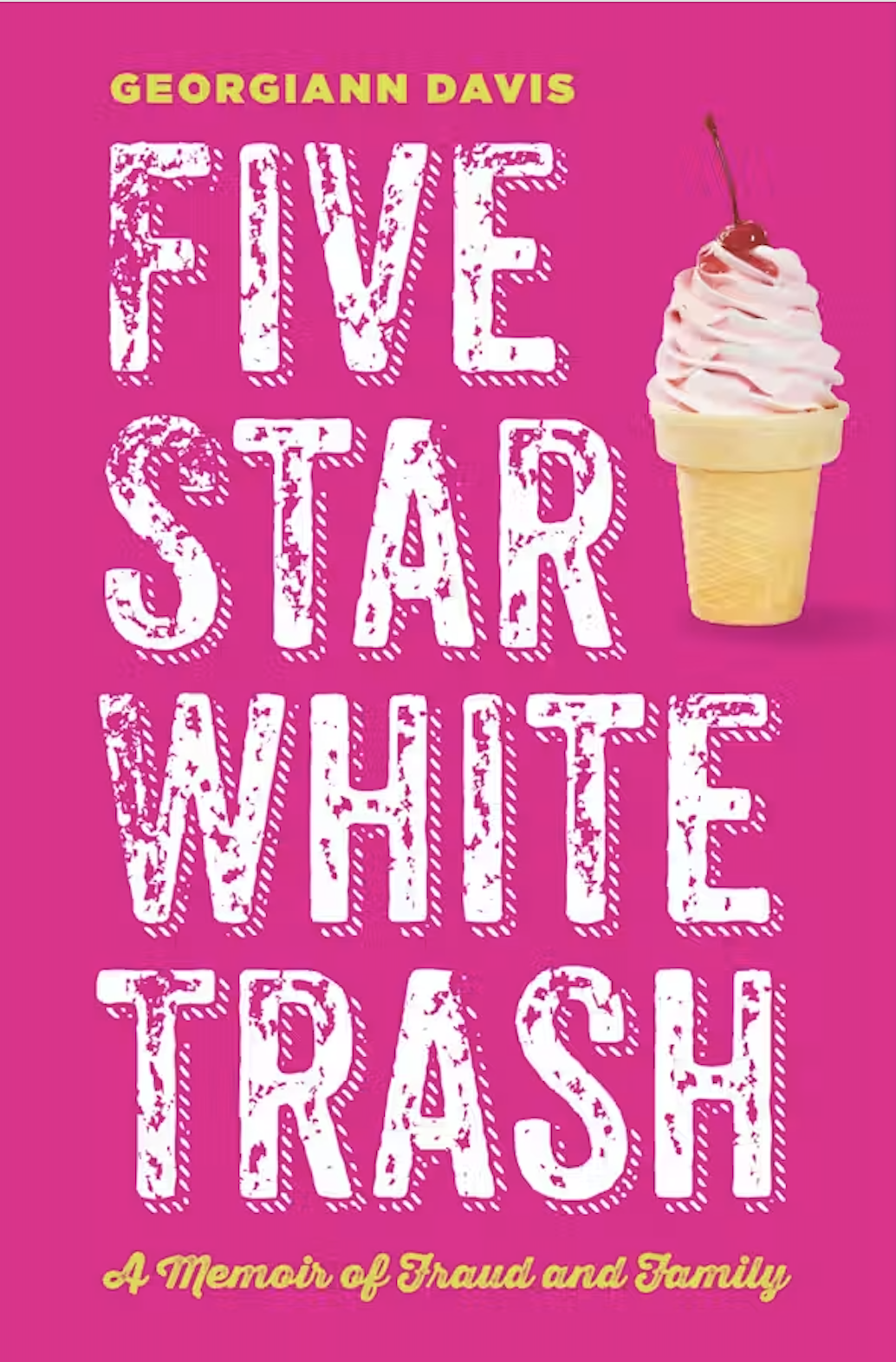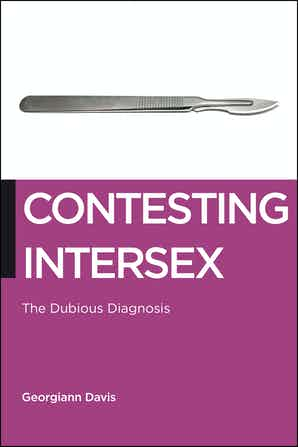Georgiann Davis
Associate Professor

Education:
PhD, Sociology, University of Illinois at Chicago (2011)
Research Interests:
Sociology of Health and Medicine, Gender, Inequality
Sociology of the Body, IntersectionalityProfile:
Books:

Five Star White Trash: A Memoir of Fraud and Family
Her family was white, but not the right kind of white. They were five star white trash. They borrowed money and tried to buy class.
In this unflinching response to JD Vance's Hillbilly Elegy, Georgiann Davis guides us through her extraordinary life, from weighing almost 300 pounds by fifth grade, to dropping out of school in the seventh and on to selling weed out of her “monkey shit green” Plymouth Neon. A tall, fat girl who only wore boy’s clothing, she grew up with a turbulent family outside of Chicago: the larger-than-life mother who looked like Farah Fawcett, the father who understood cars better than children, the brother whose drug use went unchecked, and the Greek grandparents who could only love her from afar. Then there was the shocking medical secret kept from her–one that upended everything she thought she knew about herself, gender, and the human body.
With unflinching candor and dark humor, Davis tells her ‘stranger-than-fiction’ life story in a brave voice that will have readers rooting for her. As Davis chronicles her surprising journey from middle-school dropout to professor, she reveals how whiteness colored her family’s struggles. She connects her personal experiences of medical abuse, fatphobia, and fear of the intersex body with incisive critiques of whiteness, the opioid crisis, and gendered and queer oppression. Faced with unimaginable setbacks—identity theft, home eviction, medical trauma, and family betrayal—Davis relentlessly pursued education. It was this quest that transformed her life, giving her the tools to tell her own story. The result is a deeply moving memoir which complicates our understanding of upward mobility and familial love.

Contesting Intersex: The Dubious Diagnosis
Winner, 2017 Distinguished Book Award from the American Sociological Association, Section on Sex and Gender
Winner, 2016 Donald Light Award for the Applied or Public Practice of Medical Sociology from the American Sociological Association, Section on Medical Sociology
In Contesting Intersex, Davis draws on interviews with intersex people, their parents, and medical experts to explore the oft-questioned views on intersex in medical and activist communities, as well as the evolution of thought in regards to intersex visibility and transparency. She finds that framing intersex as an abnormality is harmful and can alter the course of one’s life. In fact, controversy over this framing continues, as intersex has been renamed a ‘disorder of sex development’ throughout medicine. This happened, she suggests, as a means for doctors to reassert their authority over the intersex body in the face of increasing intersex activism in the 1990s and feminist critiques of intersex medical treatment. Davis argues the renaming of ‘intersex’ as a ‘disorder of sex development’ is strong evidence that the intersex diagnosis is dubious. Within the intersex community, though, disorder of sex development terminology is hotly disputed; some prefer not to use a term which pathologizes their bodies, while others prefer to think of intersex in scientific terms. Although terminology is currently a source of tension within the movement, Davis hopes intersex activists and their allies can come together to improve the lives of intersex people, their families, and future generations. However, for this to happen, the intersex diagnosis, as well as sex, gender, and sexuality, needs to be understood as socially constructed phenomena. A personal journey into medical and social activism, Contesting Intersex presents a unique perspective on how medical diagnoses can affect lives profoundly.
Available for purchase here.
Recent/Select Publications:
Davis, Georgiann and Torisha Khonach. 2020. “The Paradox of Positionality: Avoiding, Embracing, or Resisting Feminist Accountability,”Fat Studies: An Interdisciplinary Journal of Body Weight and Society 9(2):101-113.
Davis, Georgiann, Jodie Dewey, and Erin L. Murphy. 2016. “Giving Sex: Deconstructing Intersex and Trans Medicalization Practices,”Gender & Society 30(3):490-514.
Risman, Barbara J. and Georgiann Davis. 2013. “From Sex Roles to Gender Structure,”Current Sociology. 61(5-6):733-755.
Karkazis, Katrina, Rebecca Jordan-Young, Georgiann Davis, and Silvia Camporesi. 2012. “Out of Bounds? A Critique of the New Policies on Hyperandrogenism in Elite Female Athletes,”The American Journal of Bioethics 12(7):3-16.
Courses:
Sociological Data Analysis
Sociology of Gender
Sociology of the Body
